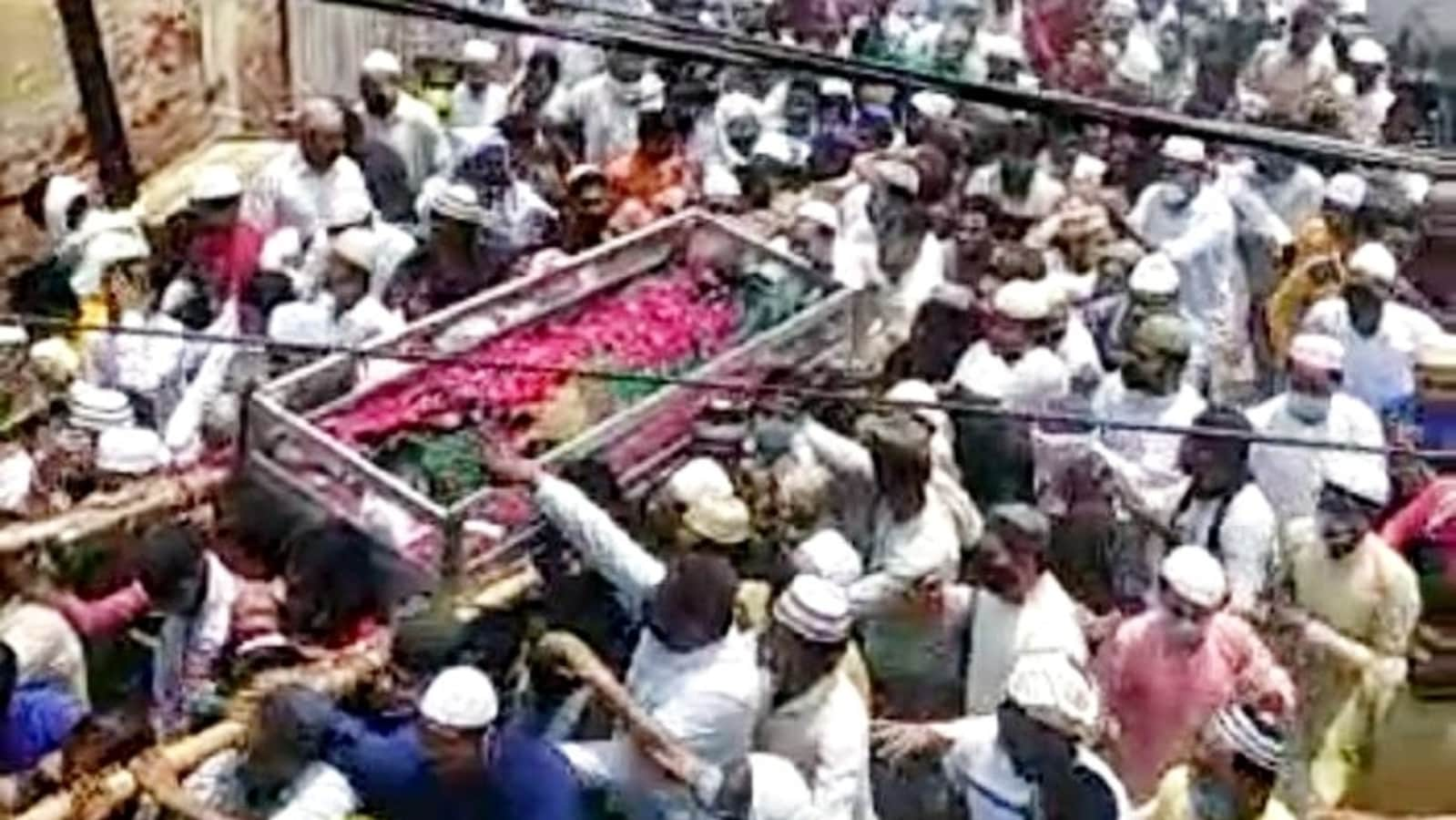On Monday, the UP police filed a First Information Report (FIR) against unidentified persons, after a huge crowd gathered after the demise of a Muslim cleric. The incident tossed away Covid19 restrictions into thin air.
According to various reports, on Sunday, scores of people attended the funeral of a Muslim cleric in Uttar Pradesh’s Badaun. It raised fears of a super spreader event in a state battling Covid-19. On Sunday afternoon, the cleric, Abdul Hamid Mohammad Salimul Qadri, had breathed his last. Within hours, thousands of followers gathered at the mosque where the cleric’s body was kept for public viewing. Kotwali Station House Officer Devendra Singh Dhama told a national daily that the people kept streaming in even though announcements were made from the mosque to avoid gathering.
Also See: New mutants of Coronavirus
People were seen violating distancing guidelines with a majority of them not wearing masks, in photographs, and a video clip circulating on social media.
To fight the second wave of Covid19, the UP government has restricted the number of people at funerals to 20. The penalty for not wearing masks is also stiff at ₹ 1,000 for the first time and ₹ 10,000 for a repeat offence. Badaun Superintendent of Police Sankalp Sharma stated, “Cases have been filed against unknown people under the Epidemics Act. We are watching the video to gather evidence and strict action will be taken against those found violating restrictions.”
Also Read:Issues faced by India in dealing with Covid 19 resurge- Is it too late to contain the Second Wave
The Badaun incident comes within days of the Gujarat incident, where numerous women (around 500) had gathered in Navapura village in Sananda taluka with metallic pots on their heads for a puja-based ritual purportedly carried out to eradicate Coronavirus. After that incident, 23 were held. Prior to the Badaun incident, the Kumbh congregation and its shahi snans were among the incidents which were blamed to be super-spreaders which have probably fuelled the second wave of the pandemic.





